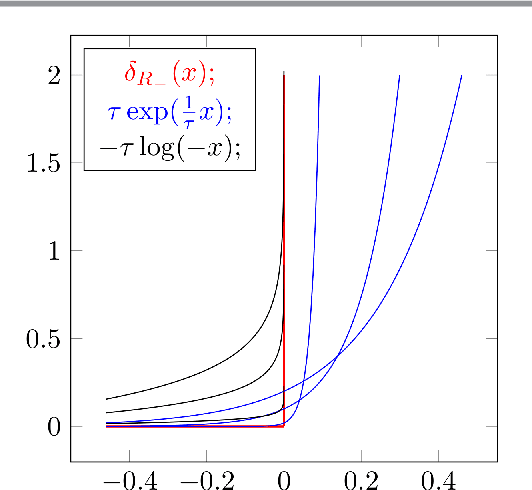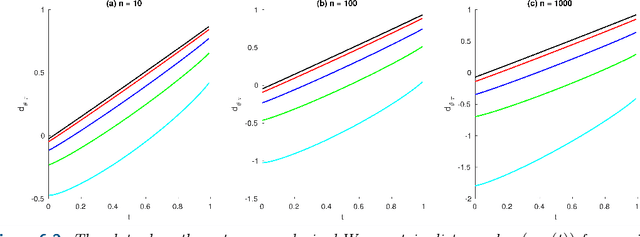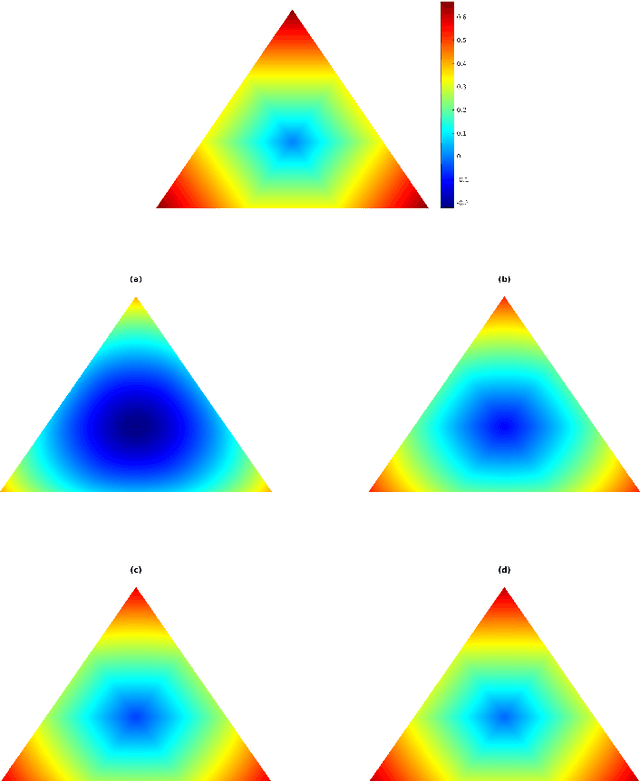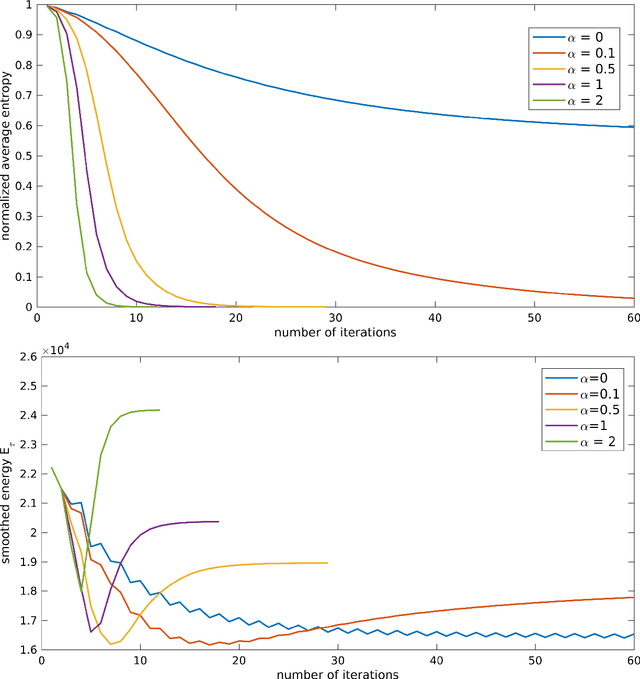Ruben Hühnerbein
Learning Adaptive Regularization for Image Labeling Using Geometric Assignment
Oct 22, 2019



Abstract:We study the inverse problem of model parameter learning for pixelwise image labeling, using the linear assignment flow and training data with ground truth. This is accomplished by a Riemannian gradient flow on the manifold of parameters that determine the regularization properties of the assignment flow. Using the symplectic partitioned Runge--Kutta method for numerical integration, it is shown that deriving the sensitivity conditions of the parameter learning problem and its discretization commute. A convenient property of our approach is that learning is based on exact inference. Carefully designed experiments demonstrate the performance of our approach, the expressiveness of the mathematical model as well as its limitations, from the viewpoint of statistical learning and optimal control.
Image Labeling Based on Graphical Models Using Wasserstein Messages and Geometric Assignment
Jan 09, 2018



Abstract:We introduce a novel approach to Maximum A Posteriori inference based on discrete graphical models. By utilizing local Wasserstein distances for coupling assignment measures across edges of the underlying graph, a given discrete objective function is smoothly approximated and restricted to the assignment manifold. A corresponding multiplicative update scheme combines in a single process (i) geometric integration of the resulting Riemannian gradient flow and (ii) rounding to integral solutions that represent valid labelings. Throughout this process, local marginalization constraints known from the established LP relaxation are satisfied, whereas the smooth geometric setting results in rapidly converging iterations that can be carried out in parallel for every edge.
 Add to Chrome
Add to Chrome Add to Firefox
Add to Firefox Add to Edge
Add to Edge